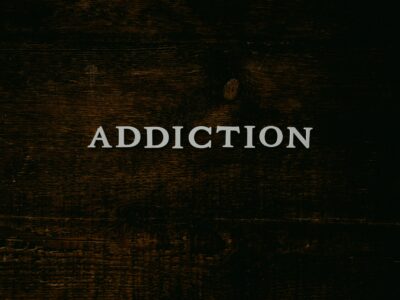Addiction rarely begins with dramatic changes or obvious behavior. Instead, it often takes root quietly, with subtle shifts in mood, habits, and health that go unnoticed until a crisis occurs. Recognizing the early, silent signs of addiction can make a life-saving difference—for yourself or someone you love.
At Mississippi Drug and Alcohol Treatment Center, we understand that many people battling addiction appear outwardly functional. Understanding what addiction can look like in its earliest phases is critical to early intervention, effective treatment, and long-term recovery.
Why the Early Signs Are Often Missed
When most people picture someone struggling with addiction, they think of extreme behavior—lost jobs, ruined relationships, or run-ins with the law. But addiction doesn’t always start this way.
In fact, some individuals, especially those who are “high-functioning,” can keep up appearances for months or even years while quietly battling substance use behind the scenes. Loved ones may mistake the warning signs for stress, fatigue, or mental health issues unrelated to drug or alcohol use.
That’s why knowing the less obvious signs of addiction is so important.
Behavioral Red Flags That May Seem Innocent
Some of the earliest changes in someone struggling with addiction show up in their routines, priorities, and behavior. Here are several common but easily overlooked indicators:
1. Subtle Social Withdrawal
They may stop responding to texts, cancel plans, or avoid group events. While this might appear to be a sign of burnout or busyness, it can also indicate isolation to hide drug or alcohol use.
2. Shifts in Sleep Patterns
Unexplained insomnia, sleeping excessively, or becoming nocturnal can all point to substance use disrupting natural sleep cycles.
3. Increased Secretiveness
People may begin guarding their phone, leaving the room to take calls, or becoming vague about where they’ve been or who they’re with.
4. Mood Swings or Irritability
Substance use affects the brain’s chemistry. Sudden emotional volatility, uncharacteristic anger, or apathy may be early signs of an underlying problem.
Changes in Appearance and Health
While not as dramatic as what’s seen in later stages of addiction, physical changes do begin early:
- Unexplained weight loss or gain
- Dilated or constricted pupils, even in normal lighting
- Neglect of grooming or hygiene
- Frequent nosebleeds (in the case of snorted substances)
- Tremors or shaking hands
- Complaints of headaches or nausea without a clear cause
These symptoms can often be mistaken for other health conditions or dismissed as stress-related. However, taken together, they can be telling.
Emotional and Mental Health Shifts
Mental health and addiction are closely intertwined. Often, addiction can look like:
- Increased anxiety or panic attacks
- Episodes of depression or hopelessness
- Paranoia or restlessness
- Loss of motivation or sudden disinterest in hobbies
These symptoms may not immediately signal drug or alcohol use—but when they appear alongside behavioral or physical changes, it’s worth considering addiction as a possibility.
The Role of Denial and Stigma
One of the biggest barriers to recognizing the signs of addiction is denial—both by the individual and by those around them.
Many people struggling with substance use don’t fit the stereotype of an “addict.” They may hold down a job, care for a family, and seem outwardly stable. Loved ones, not wanting to believe something is wrong, may rationalize concerning behaviors as just “a rough patch.”
Unfortunately, this can delay treatment until the addiction becomes harder to manage.
When to Take Action
If you notice several of these warning signs—especially if they persist or worsen over time—it’s important not to wait.
You don’t need to catch someone “in the act” or confirm your suspicions before seeking help. Addiction is a progressive condition, and early support can prevent deeper consequences.
Approaching someone with compassion, rather than confrontation, is key. Express concern without accusation and be ready to offer support in connecting with professional help.
How MSDATC Can Help
At Mississippi Drug and Alcohol Treatment Center, we understand how difficult it can be to acknowledge or confront addiction. Our team offers compassionate, evidence-based care tailored to each person’s needs—whether they’re in crisis or just beginning to recognize the signs.
We provide a safe, stigma-free environment for healing, including:
- Medical detox services
- Residential and outpatient treatment options
- Dual diagnosis treatment for mental health concerns
- Family involvement and education
- Trauma-informed therapy
Learn more about our full treatment programs and how we support long-term recovery.
A Trusted Resource for Recovery
If you’re seeing silent signs of addiction in yourself or someone close to you, you’re not alone—and it’s not too early to seek help. Getting ahead of the problem can change the outcome entirely.
According to the National Institute on Drug Abuse, addiction is a treatable medical condition, not a moral failing. Early intervention can lead to better recovery outcomes and lower the risk of long-term health damage.
Reach Out Before It Escalates
If something feels off, trust your instincts. Addiction often hides in plain sight—and the earlier it’s addressed, the better the chances of recovery. Whether you’re worried about a loved one or yourself, reach out now and take the first step toward healing.


 Polysubstance Withdrawal: Risks, Symptoms, and Treatment in Mississippi
Polysubstance Withdrawal: Risks, Symptoms, and Treatment in Mississippi